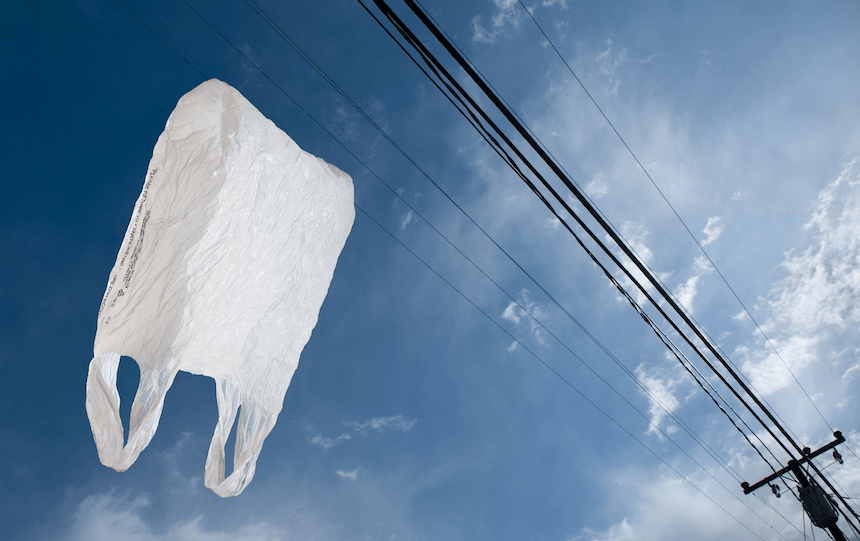A petition signed by more than 16,000 Kiwis prodded parliament to look into single use plastic bags last year. Now our two major supermarket retailers are going toe-to-toe to clamp down on them – and that’s good news for all of us, writes Rebecca Stevenson.
Spare a thought for New World. It was only a few weeks ago that Greenpeace were accusing the supermarket chain of rigging what seemed a well-intentioned should-we-or-shouldn’t-we poll into the future of its plastic bag usage. Perhaps sensing an opportunity, Countdown flopped out an announcement before the poll had even closed that it will do away with plastic bags altogether by the end of 2018.
“Now is the right time to take the lead,” Countdown boss Dave Chambers said, twisting the knife. “This move will result in the removal of 350 million plastic bags from our waste stream and environment.”
Countdown says its research showed the vast majority of customers want to say goodbye to single use plastic bags. It’s trialled the move already – with the eco-curmudgeons on Waiheke the first to taste freedom from plastic bags. On the island shoppers can either bring their own reusable bag, or purchase a compostable one for 15 cents.
So what is so bad about plastic bags? Pretty much everything other than the fact you can use them as rubbish bags once you’ve carted your purchases home. Fossil fuels are used to make them, there’s an estimated 1.6 billion of them being handed out to us each year, they take longer to degrade than other bags and when they get loose they can cause all sorts of problems in the environment.
Internationally Kenya has banned them, while in the UK they’ve introduced a law which forces large shops to charge consumers 5 pence a pop for plastic bags. Since the charge was introduced in 2015 the number of single use plastic bags used has dropped 80% by the seven biggest retailers. 80%! That’s nine BILLION fewer plastic bags in circulation.
And the cash raised from those people who insist/pay to use them isn’t disappearing into the general tax take, its being used for good causes with an estimated $750 million donated since the charge was introduced.
Why wouldn’t this work just as well here? Countdown did consider charging for bags, but Chambers says it was “not the right option” for the company or its customers.
“Charging is also not the ideal outcome for the environment, because these bags are still provided.”
Oooh burn New World. Because much like in the UK, New World was investigating a charge to reduce plastic bag use.
It had set up a pretty nifty awareness raising campaign/promotional exercise which allowed Kiwis to vote whether they would like to pay 5c, 10c, or not at all for a bag.
The co-operative had promised to be bound by whatever the customer voted that they wanted! Greenpeace wanted to fight them about it because a ban wasn’t an option people could choose, and New World was in the front, leading the charge towards a charge for plastic bags and now Countdown has all the headlines and the kudos.
Regardless of the vote’s outcome, New World’s Steve Anderson said the co-op will “continue to work on reducing plastic bag use, providing more reusable bag options and increasing soft plastics recycling”.
Its North Island outlets are also offering a 5c rebate to customers who bring their own bags for use at the checkout, which it says has resulted in up to a 20 percent drop in plastic bag usage since it was implemented in January 2016.
And for all those reusable bag users out there feeling smug, stop. It’s also estimated a reusable bag needs to be used more than 170 times to match the environmental cost of manufacturing them.
I hope the back-and-forth between our two supermarket giants continues, because if the battle for our wallets means less junk in the oceans I am all for this corporate one-upping.
Your move New World.
The Spinoff’s business content is brought to you by our friends at Kiwibank. Kiwibank backs small to medium businesses, social enterprises and Kiwis who innovate to make good things happen.
Check out how Kiwibank can help your business take the next step.
